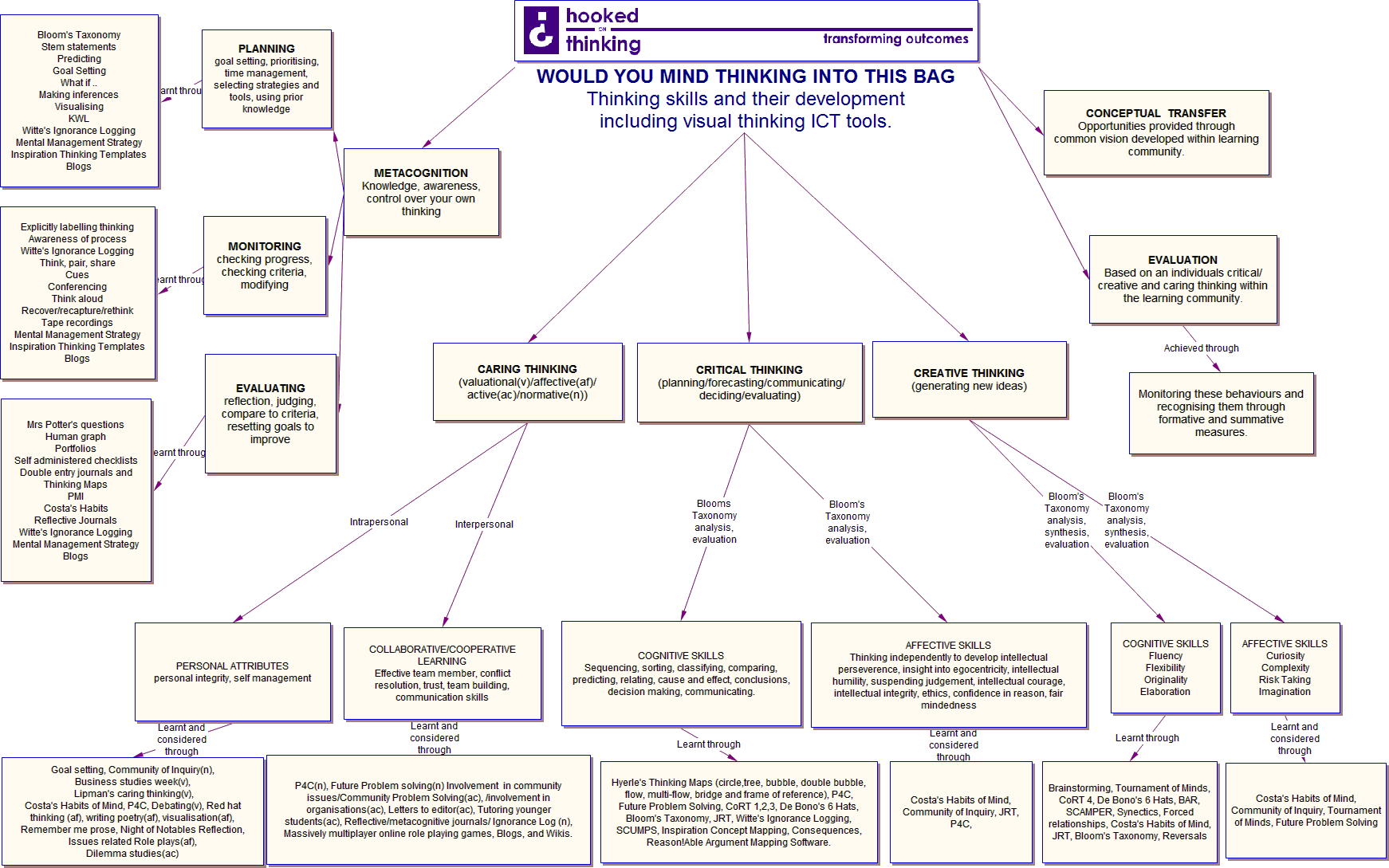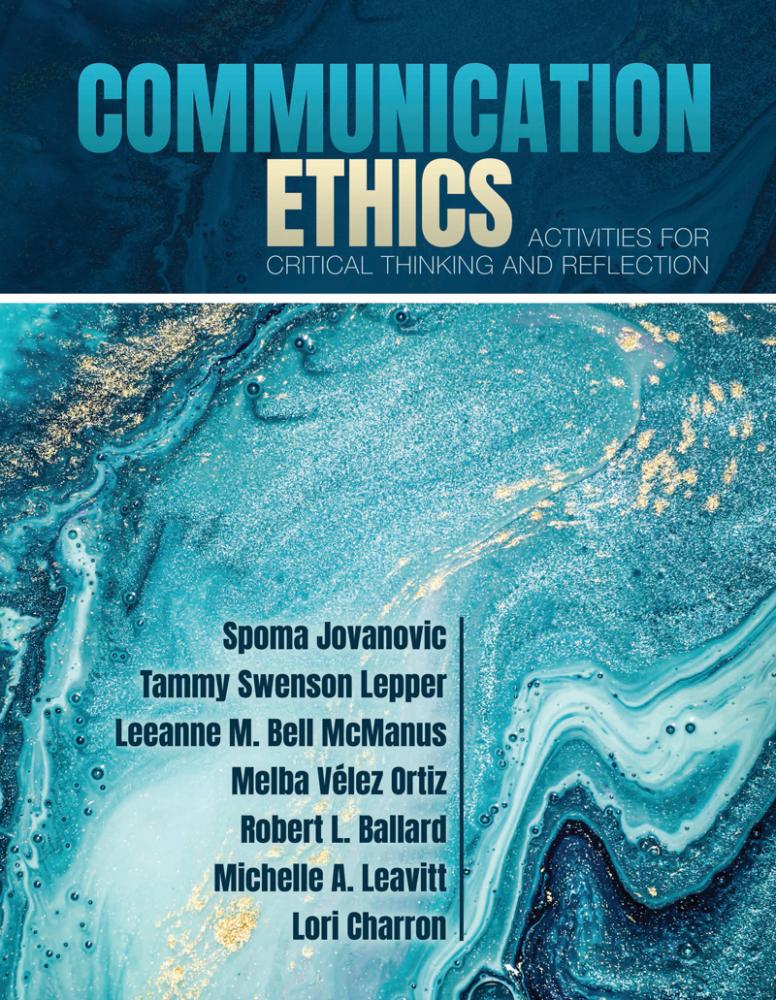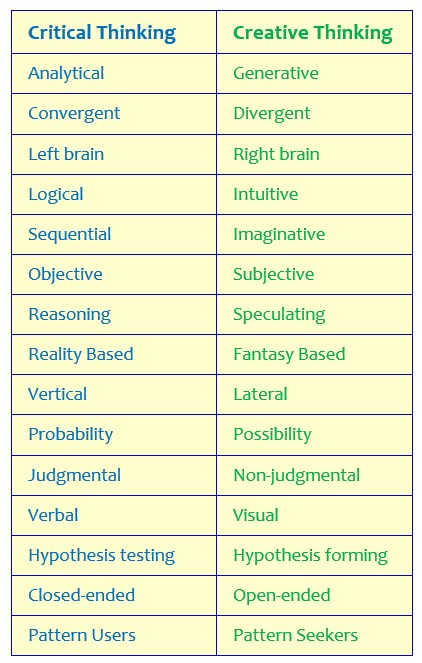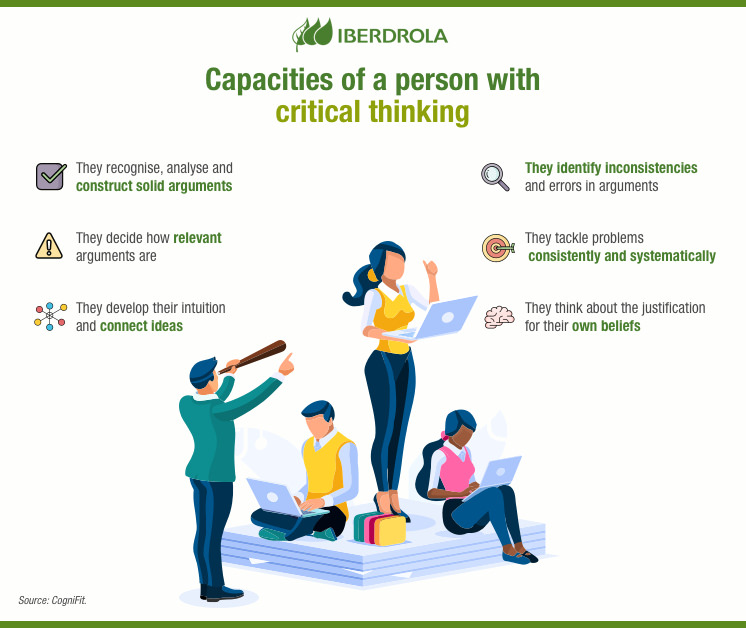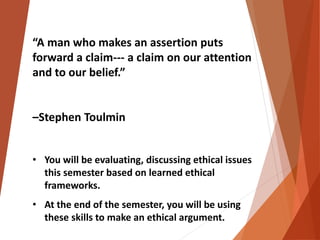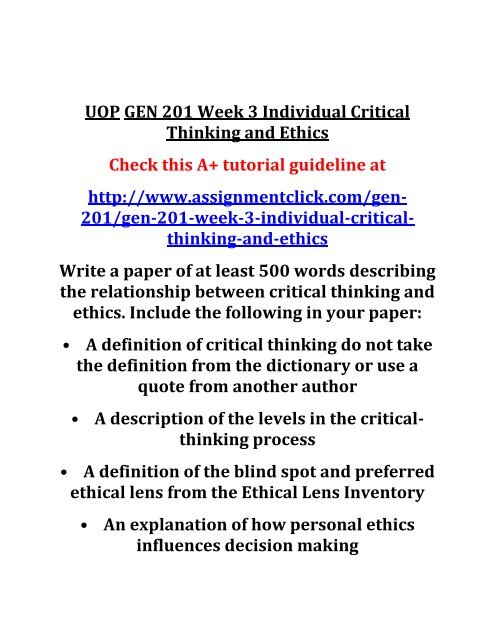Critical thinking and ethics are closely related because they both involve evaluating and analyzing information and arguments in order to make informed and reasoned decisions.
Critical thinking involves the ability to think critically about a subject or issue, which means using logic, reasoning, and evidence to evaluate the strengths and weaknesses of an argument or perspective. It involves being open-minded and considering multiple viewpoints, as well as being willing to revise one's own beliefs in light of new evidence.
Ethics, on the other hand, involves moral principles and values that guide the way we behave and make decisions. It involves considering the impact of our actions on others and trying to do what is right and fair.
In order to think critically about ethical issues, it is necessary to use critical thinking skills to evaluate and analyze the different arguments and perspectives on the issue. For example, if we are considering the ethical implications of a new technology, we might consider the potential benefits and drawbacks of using the technology, as well as the potential consequences for different groups of people.
In this way, critical thinking and ethics are interconnected, as critical thinking helps us to evaluate and analyze ethical issues, and ethics helps to guide our decisions and actions based on what we believe is right and wrong.
Overall, critical thinking and ethics are important tools for making informed and reasoned decisions that are grounded in logic, evidence, and moral principles. By using these skills, we can make decisions that are fair, just, and in line with our values.

